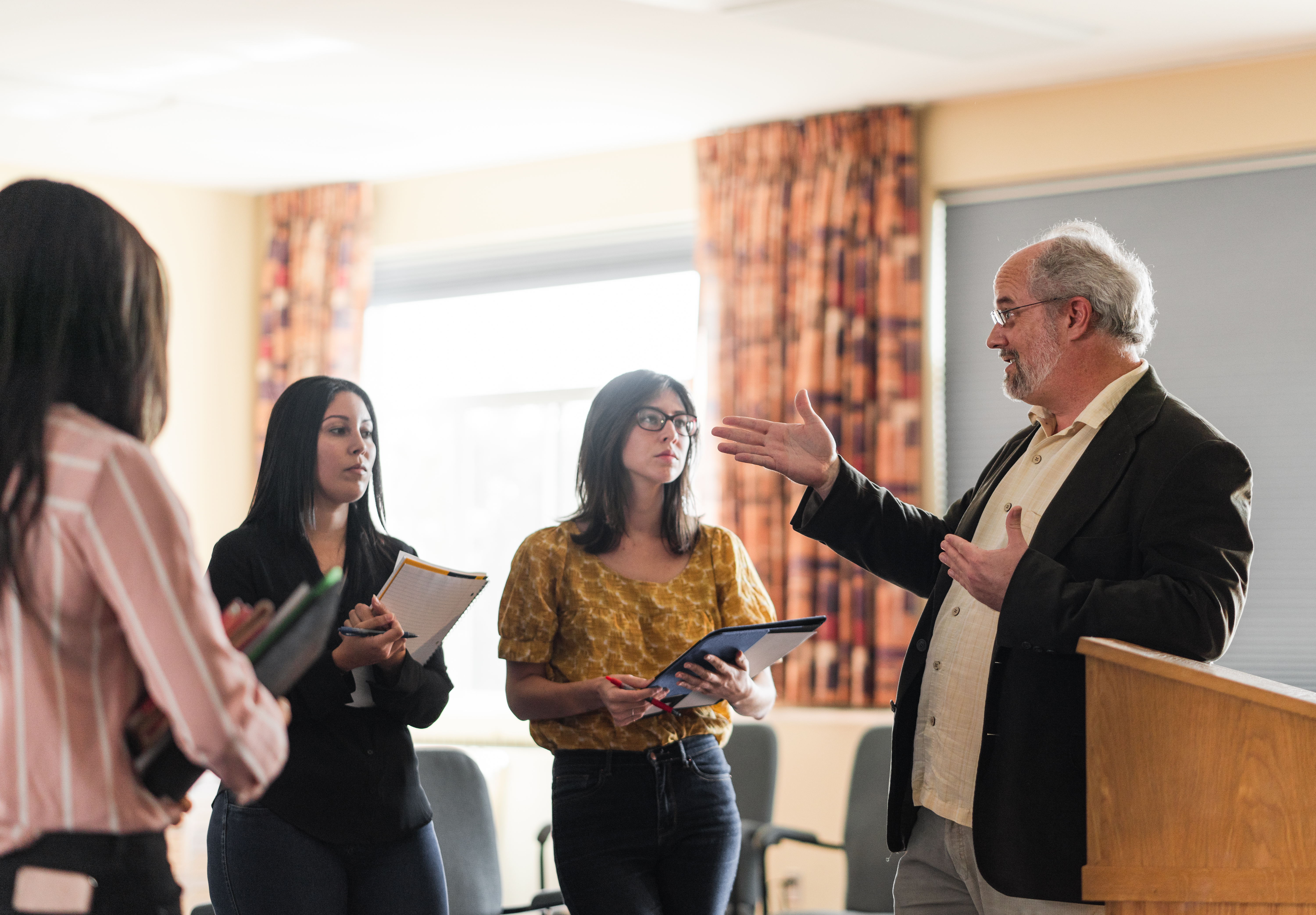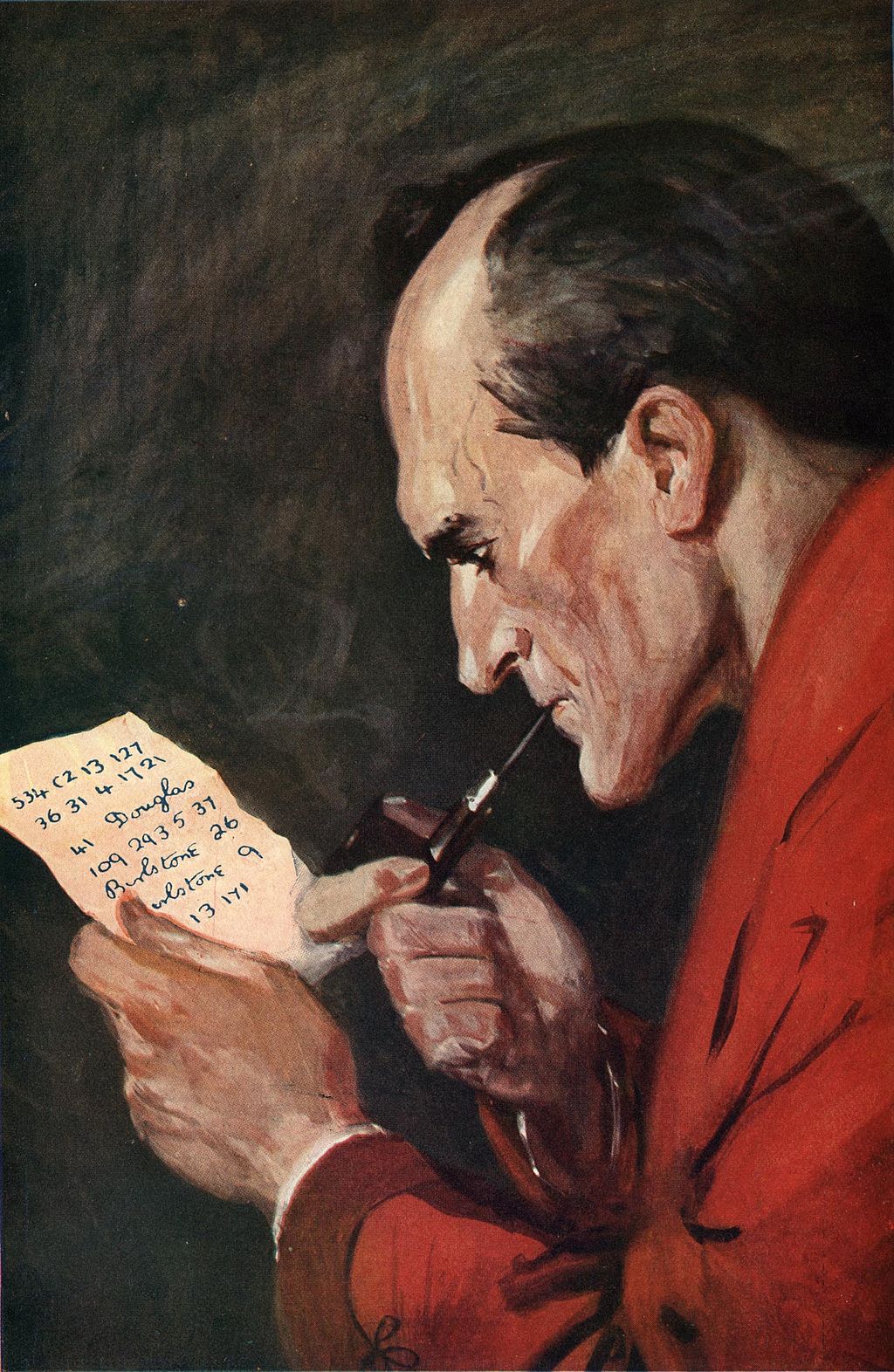A blog post by Melissa Ruisz Nazario based on a webinar presented by Keiron Le Grice, Ph.D.
What is archetypal cosmology, and why might you want to study it? Check out the post Archetypal Cosmology, Part I: Beyond Outer and Inner Space for a more in-depth description that gives background on the field.
To summarize, archetypal cosmology is a new discipline but rooted in the ancient practice of astrology. It is based on the idea that the celestial bodies like the solar system’s planets and the sun and their relative configurations reflect the deep order of the psyche—the psyche being the totality of psychological experience, according to C.G. Jung.
Read More
Posted in:
The Psyche,
James Hillman,
archetypes,
Psychology,
soul,
depth psychology,
psyche,
humanities,
Pacifica Graduate Institute,
sacred,
cosmology,
symbolism,
Spiritual
A blog post by Melissa Ruisz Nazario based on a webinar presented by Keiron Le Grice, Ph.D.
Astrology is the ancient practice of looking at the relative positions of celestial bodies and their relationship and influence on earth, the natural world, and humans. [1] Depth psychology has to do with psychologies and therapies involving “the exploration of the subtle, unconscious, and transpersonal aspects of human experience.” [2]
Read More
Posted in:
The Psyche,
James Hillman,
archetypes,
Psychology,
soul,
depth psychology,
psyche,
humanities,
Pacifica Graduate Institute,
sacred,
cosmology,
symbolism,
Spiritual
A guest post by Craig Chalquist, Ph.D.
What good is the study of myth?
I love this topic so much I could write a book on it. In fact, I have, called Myths Among Us: When Timeless Tales Return to Life (World Soul Books, 2017). The book spends 658 pages on the question of what good is mythology, with real-life applications and many stories.
Here I’ll offer some brief examples taken from the life arenas of self-knowledge, work, finance, diversity, and persuasion.
Read More
Posted in:
Joseph Campbell,
Mythology,
C.G. Jung
A blog post by Melissa Ruisz Nazario based on a webinar presented by Susan Rowland, Ph.D.
“Depth psychology is a psychology of the creative imagination,” says Susan Rowland, Ph.D., Chair of Pacifica’s M.A. program in Engaged Humanities and the Creative Life. She explains that while depth psychology originated and continues to be a powerful form of psychotherapy, its devotion to the creative imagination makes it important beyond the consulting room.
Read More
Posted in:
Joseph Campbell,
archetypes,
Psychology,
soul,
depth psychology,
humanities,
Pacifica Graduate Institute,
sacred,
symbolism,
Spiritual
Is personal, intellectual, or creative growth one of your goals for this year, or for your life in general? Do you long to connect with others interested in the intersections of art, soul, and depth psychology? Let one of Pacifica’s upcoming events this spring be the catalyst for you to plug into our like-minded community, and get ready to experience and engage in deep, meaningful conversations where you are able to hold space for each other and learn new, exciting ways to explore your creative potential.
Read More
Posted in:
Pacifica Events,
Pacifica News,
Santa Barbara,
graduate school,
creativity,
art,
vocation,
Education,
depth psychology,
active imagination,
Pacifica Students,
Pacifica Graduate Institute,
resources
Last week, Pacifica president and CEO Dr. Joseph Cambray did an interview with Connecting with Coincidence with Dr. Bernard Beitman, MD on Expanding Jung's Views of Synchronicity. Dr. Cambray is one of the leading experts on this topic in the field. Click below to
listen to the interview.

Read More
Posted in:
C.G. Jung,
Pacifica News,
Pacifica Graduate Institute,
resources,
interview
"By extending the concepts of psychology and mythological studies beyond the personal, beyond the consulting room, and beyond the classroom, we see psychological life as an evolutionary development within nature, alive in all the phenomena and systems of our world. In studying and working with these multidimensional exchanges, we facilitate contributions to the contemporary concerns of our world through dialogues between the psyche of the individual, the mythologies of the culture, the collective human imagination, and the living planet."
Read More
Posted in:
Santa Barbara,
graduate school,
Education,
Pacifica Graduate Institute,
resources,
admissions
A guest blog post by Craig Chalquist, Ph.D., Associate Provost of Pacifica Graduate Institute.
Today is January 9th, which fans of the Great Detective have decided is his birthday. For those into astrology, this would make his natal sun sign studious, hard-working Capricorn. Sir Arthur Conan Doyle’s novels give no indication of the time of day Holmes was born, but I have a feeling, given his interests and how he pursued them, that his natal chart is nocturnal. No doubt Virgo, Mercury, Pluto, and Saturn had a lot to say to each other in it, especially in Houses 12 (secrets, mysteries) and 8 (death, rebirth, other people’s money).
I encountered Holmes as a result of committing a crime. When I was in high school, a bully made the mistake of picking on my friends and me. The school authorities did nothing, so I knocked him out at lunchtime and set his locker on fire for good measure.
Read More
Posted in:
C.G. Jung,
Psychology,
alchemy,
depth psychology,
narrative,
storytelling,
alchemist,
jungian,
relationship,
relationships
“The question of vocation is crucial, and choosing the right one requires listening to the voice within. The root of the word “vocation” is Latin for voice. Learning to trust that inner voice in the face of economic and social pressures that might urge otherwise is an act of courage. Accessing that courage is key to finding the voice.”
~ Dr. Joseph Cambray, President and CEO
Read More
Posted in:
Counseling Psychology,
clinical psychology,
graduate school,
Education,
Pacifica Graduate Institute
A blog post by Melissa Ruisz Nazario
In the preface to the thirtieth anniversary edition of her seminal book, Writing Down the Bones [1], first published in 1986, Natalie Goldberg explains why she thinks so many people want to write.
“I don’t think everyone wants to create the great American novel, but we all have a dream of telling our stories–of realizing what we think, feel, and see before we die,” she observes. “Writing is a path to meet ourselves.”
The “bones” Goldberg wants her students to write down is, in her words, “the essential, awake speech of their minds.” She acknowledges this is easier said than done: “But I also know that I can’t just say, okay, write clearly and with great honesty. In class, we try different techniques and methods. Eventually the students hit the mark, come home to what they need to say and how they need to say it.”
Read More
Posted in:
Joseph Campbell,
archetypes,
Psychology,
soul,
depth psychology,
sacred,
symbolism,
Spiritual



.jpg)





.png)




